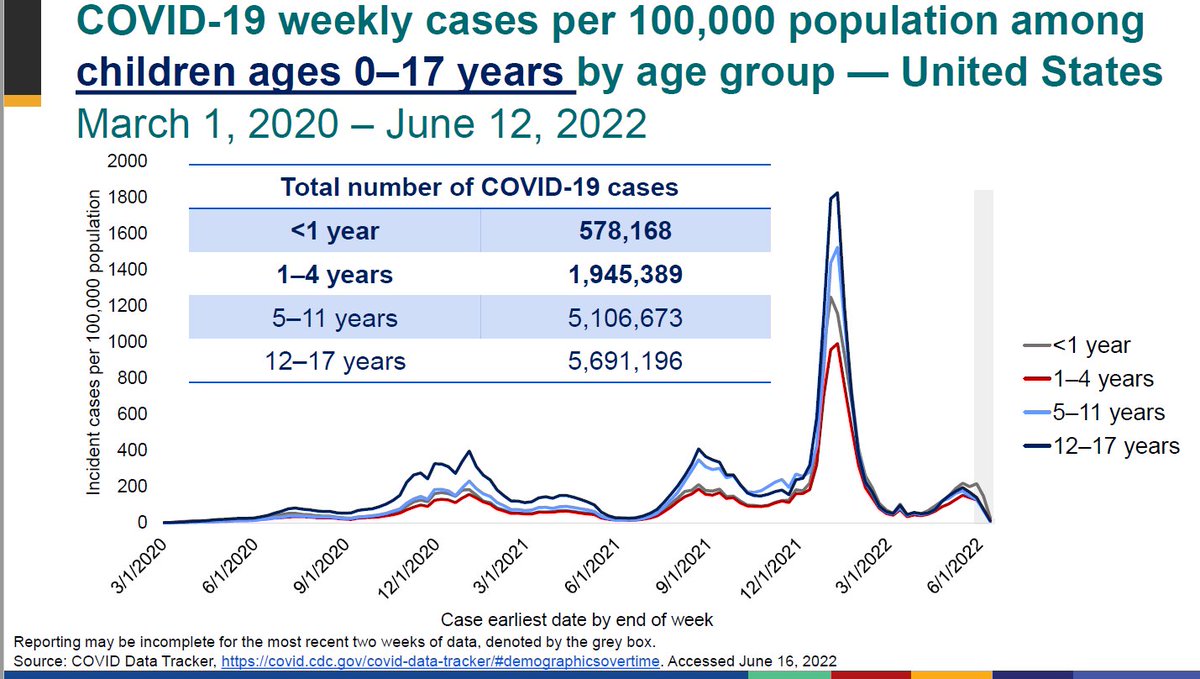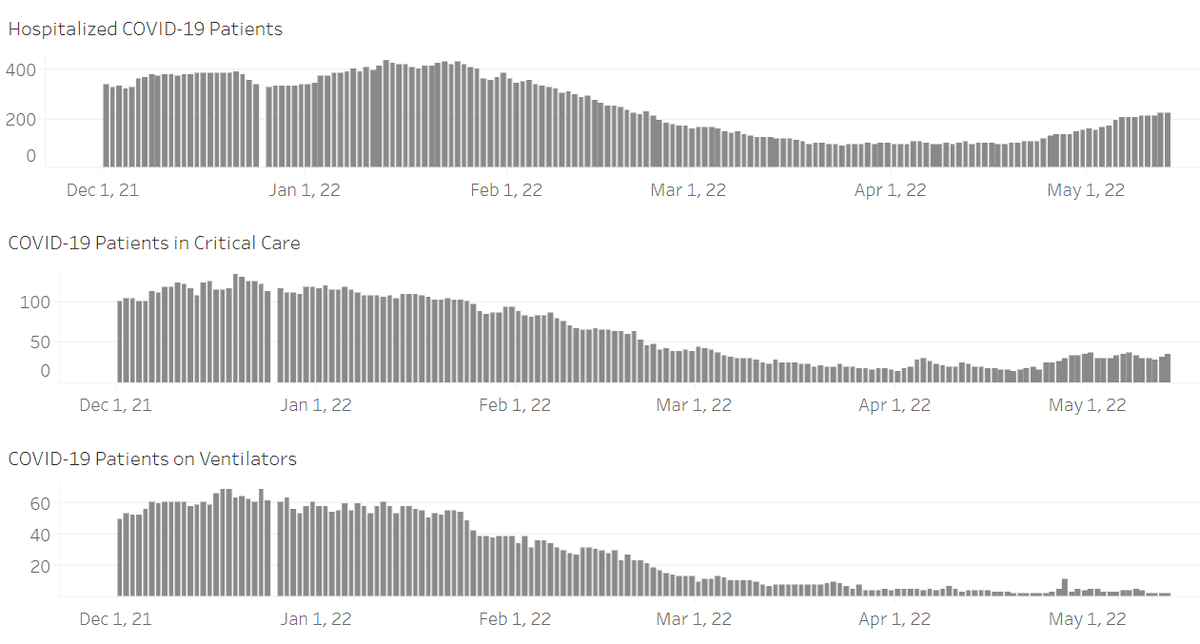1/It's time to review recent data around #COVID19 outcomes by vaccination status.
Let's start with the risk of testing positive for #COVID19. Nationwide, an unvaccinated person has a 5X higher risk of testing positive for COVID.
covid.cdc.gov/covid-data-tra…
Let's start with the risk of testing positive for #COVID19. Nationwide, an unvaccinated person has a 5X higher risk of testing positive for COVID.
covid.cdc.gov/covid-data-tra…

2/Here are those data broken out by age group. Every fully vaccinated age group has a lower risk than every unvaccinated group. 

3/The impact of vaccination on risk of death from #COVID19 is even more stark.
In October, an unvaccinated person had a 14X higher risk of dying from COVID19 compared to a fully vaccinated person.
In October, an unvaccinated person had a 14X higher risk of dying from COVID19 compared to a fully vaccinated person.

4/In terms of risk of death by age, a fully vaccinated 80+ y/o has roughly the same risk of death from #COVID19 as an unvaccinated 50-64 year old.
Same with a fully vaccinated 65-79 y/o and an unvaccinated 30-49 y/o.
Same with a fully vaccinated 65-79 y/o and an unvaccinated 30-49 y/o.

5/What role do boosters play?
In Oct, an unvaccinated person had a 10X higher risk of testing positive for COVID compared to a boosted person.
In Oct, an unvaccinated person had a 10X higher risk of testing positive for COVID compared to a boosted person.

6/The impact of boosters on death rates is even more striking.
In Oct, an unvaccinated person had a 20X lower risk of dying from #COVID19 compared to a fully vaccinated person with an additional/booster dose.
Not many medical interventions can achieve that.
In Oct, an unvaccinated person had a 20X lower risk of dying from #COVID19 compared to a fully vaccinated person with an additional/booster dose.
Not many medical interventions can achieve that.

7/Let's look at hospitalization by vaccine status.
For adults, the cumulative #COVID19 associated hospitalization rate was about 8X higher in unvaccinated persons (blue line) compared with vaccinated ones (green line).
covid.cdc.gov/covid-data-tra…
For adults, the cumulative #COVID19 associated hospitalization rate was about 8X higher in unvaccinated persons (blue line) compared with vaccinated ones (green line).
covid.cdc.gov/covid-data-tra…

8/What does all this mean? First, it is continued evidence for the performance of vaccines. Are they 100% effective? No, nothing in medicine is.
Second, are they doing what they were designed to do? Yes, they are keeping people out of the hospital and alive.
Second, are they doing what they were designed to do? Yes, they are keeping people out of the hospital and alive.
9/Third, do boosters matter? Yes, absolutely, especially in light of #Omicron.
Get vaccinated and, if you have, get boosted when eligible.
Get vaccinated and, if you have, get boosted when eligible.
10/Erratum--tweet #6 of this thread should read:
"In Oct, an unvaccinated person had a 20X *higher* risk of dying from #COVID19 compared to a fully vaccinated person with an additional/booster dose."
"In Oct, an unvaccinated person had a 20X *higher* risk of dying from #COVID19 compared to a fully vaccinated person with an additional/booster dose."
• • •
Missing some Tweet in this thread? You can try to
force a refresh










